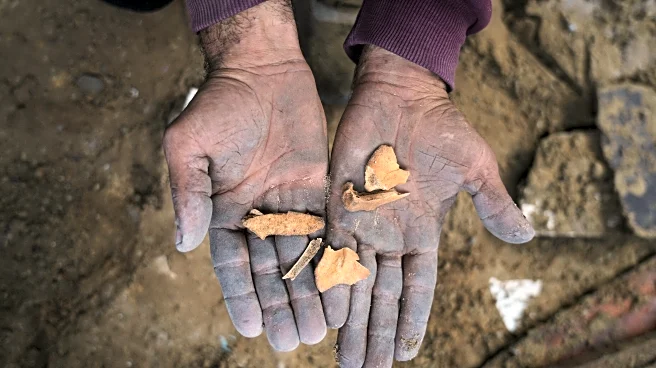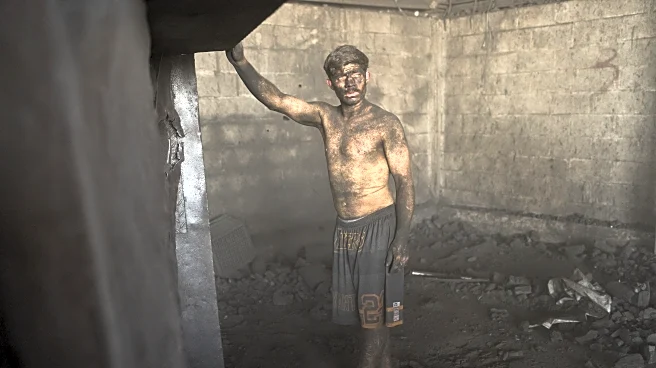Rapid Read • 9 min read
The United Nations Children's Fund (UNICEF) has raised alarms over the severe impact of funding cuts on children in Sudan. According to UNICEF, these reductions are driving a generation of children to the brink of irreversible harm, as malnutrition cases continue to rise across the country. The funding crisis, exacerbated by decisions from the U.S. and other donor states to slash foreign aid, has left children with limited access to essential resources such as safe water, food, and healthcare. UNICEF's Representative in Sudan, Sheldon Yett, highlighted the dire situation, noting that many children are severely malnourished. The ongoing conflict between Sudan's army and the Rapid Support Forces has displaced millions, further complicating aid delivery. The World Food Programme has warned of famine risks in several areas south of Khartoum. UNICEF reports that only 23% of the $4.16 billion global humanitarian response plan for Sudan has been funded, and access to affected areas remains challenging due to seasonal rains and ongoing sieges.
AD
The funding cuts have significant implications for Sudan's future, as they threaten the well-being and development of an entire generation. The lack of resources and support could lead to long-term health and developmental issues for children, impacting the country's socio-economic stability. The crisis highlights the critical role of international aid in conflict zones and the consequences of reduced funding. The situation in Sudan serves as a stark reminder of the interconnectedness of global humanitarian efforts and the potential ripple effects of policy changes in donor countries like the U.S. The reduction in aid not only affects immediate relief efforts but also undermines long-term recovery and development plans, potentially leading to increased instability and further humanitarian crises.
UNICEF and other humanitarian organizations are likely to continue advocating for increased funding and access to affected areas. Efforts to negotiate safe passage for aid delivery in besieged regions like Al-Fashir are expected to intensify. The international community may face pressure to reassess aid policies and commitments to prevent further deterioration of the situation. Stakeholders, including donor countries, may need to explore alternative funding mechanisms or partnerships to address the urgent needs in Sudan. The ongoing conflict and humanitarian challenges will require sustained attention and coordinated efforts to mitigate the impact on vulnerable populations.
The crisis in Sudan underscores broader ethical and humanitarian considerations regarding international aid distribution. It raises questions about the responsibility of wealthier nations to support vulnerable populations in conflict zones and the moral implications of funding cuts. The situation also highlights the need for more sustainable and resilient aid strategies that can withstand political and economic fluctuations. Long-term solutions may involve strengthening local capacities and infrastructure to reduce dependency on external aid and improve resilience against future crises.
AD
More Stories You Might Enjoy












